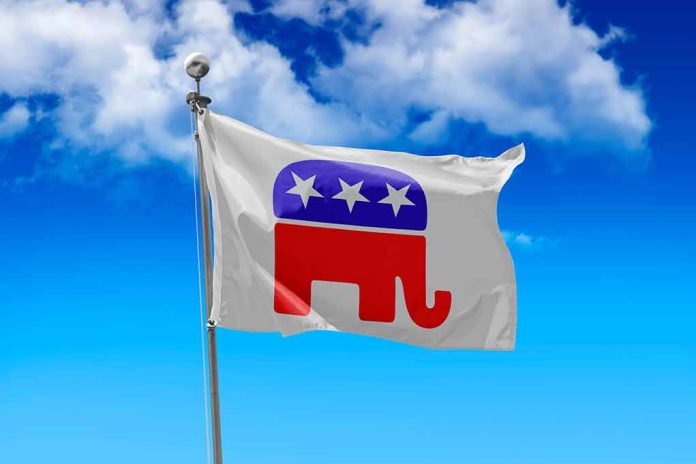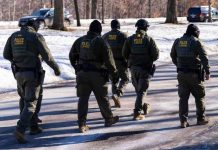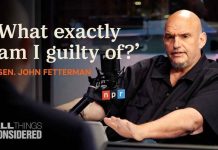
The House Committee on Oversight and Government Reform intensifies its investigation into sanctuary jurisdictions, demanding testimony from Governors Pritzker, Walz, and Hochul.
Key Takeaways
- Illinois Gov. JB Pritzker faces Congressional scrutiny over state immigration policies.
- The House Oversight Committee targets sanctuary jurisdictions for non-compliance with federal immigration laws.
- James Comer spearheads the investigation, pressing for documents and testimonies from state governors.
- Gov. Kathy Hochul agrees to testify, while Gov. Tim Walz’s participation remains uncertain.
- The committee seeks federal measures against perceived public safety threats due to sanctuary policies.
Committee’s Expanding Investigation
Chairman James Comer of the House Committee on Oversight and Government Reform has broadened his inquiry into sanctuary jurisdictions across the nation. The committee has invited Illinois Gov. JB Pritzker to testify at a hearing scheduled for May 15. This is part of a larger initiative to scrutinize jurisdictions that limit cooperation with federal immigration enforcement. The request for testimonies also extends to Minnesota Gov. Tim Walz and New York Gov. Kathy Hochul, with Hochul already confirming her attendance.
James Comer has issued demands for relevant documents and communications from these states, highlighting concerns over public safety risks associated with sanctuary policies. The investigation centers on whether these jurisdictions obstruct the work of federal agencies and jeopardize U.S. immigration laws. Comer stresses, “Sanctuary policies championed by these governors jeopardize the safety of Americans and defy U.S. immigration laws.”
House Oversight Committee Chairman James Comer, R-Kentucky, sent letters requesting testimony from "sanctuary governors" on Thursday as part of an ongoing committee investigation into sanctuary jurisdictions and their effects on public safety.
Minnesota Gov. Tim Walz, Illinois… pic.twitter.com/6cylkwAmV0
— Melissa Hallman (@dotconnectinga) April 10, 2025
Political Implications
Conservative leaders argue that sanctuary policies hinder law enforcement and exacerbate safety issues. President Donald Trump has reiterated his opposition to sanctuary cities, proposing executive actions to withhold federal funding from non-compliant states. Meanwhile, the inquiry provides Comer with national attention, fueling speculations about his potential gubernatorial bid in 2027. Though a focal point remains on Illinois, Minnesota’s inclusion in the probe is less clear given its smaller unauthorized immigrant populace. Hochul has expressed willingness to cooperate with ICE under certain conditions, marking a slight policy shift.
“Gov. Pritzker has spent years promoting Illinois as the most welcoming state in the nation, while continuing to refuse Illinois Senate Republicans’ calls to provide a transparent accounting of the billions of Illinois taxpayer dollars he has spent on his non-citizen incentive programs. The Governor should welcome this invitation to testify before Congress and provide answers about his dangerous policies, their detrimental effects on public safety and their significant financial costs to the people of Illinois,” reads a statement released by Illinois Senate Republican Leader John Curran.
Chicago Mayor Brandon Johnson criticized the hearing as an exercise in political theater, defending the state’s policies as safety measures. He maintains confidence that Pritzker will robustly defend Illinois’ stance if he attends the hearing. On the other hand, Comer’s investigation echoes measures initiated by previous administrations, underscoring the continuity of federal efforts to enforce immigration laws stringently.
The Road Ahead for Sanctuary Jurisdictions
The House Committee on Oversight and Government Reform is preparing to review testimonies and documents to assess the implications of sanctuary policies on national safety and law enforcement. The investigation represents a critical element of ongoing discourse around state and federal roles in immigration control. As events unfold, the resulting dialogues and policy decisions will likely shape the broader landscape of U.S. immigration law enforcement, aligning with earlier steps taken by the Trump administration.
Defenders of sanctuary policies assert their necessity for safeguarding local communities and fostering trust with immigrant populations. This pending Congressional hearing is poised to spotlight the tension between state jurisdictions and federal mandates, testing the limits of cooperative compliance in immigration enforcement.





